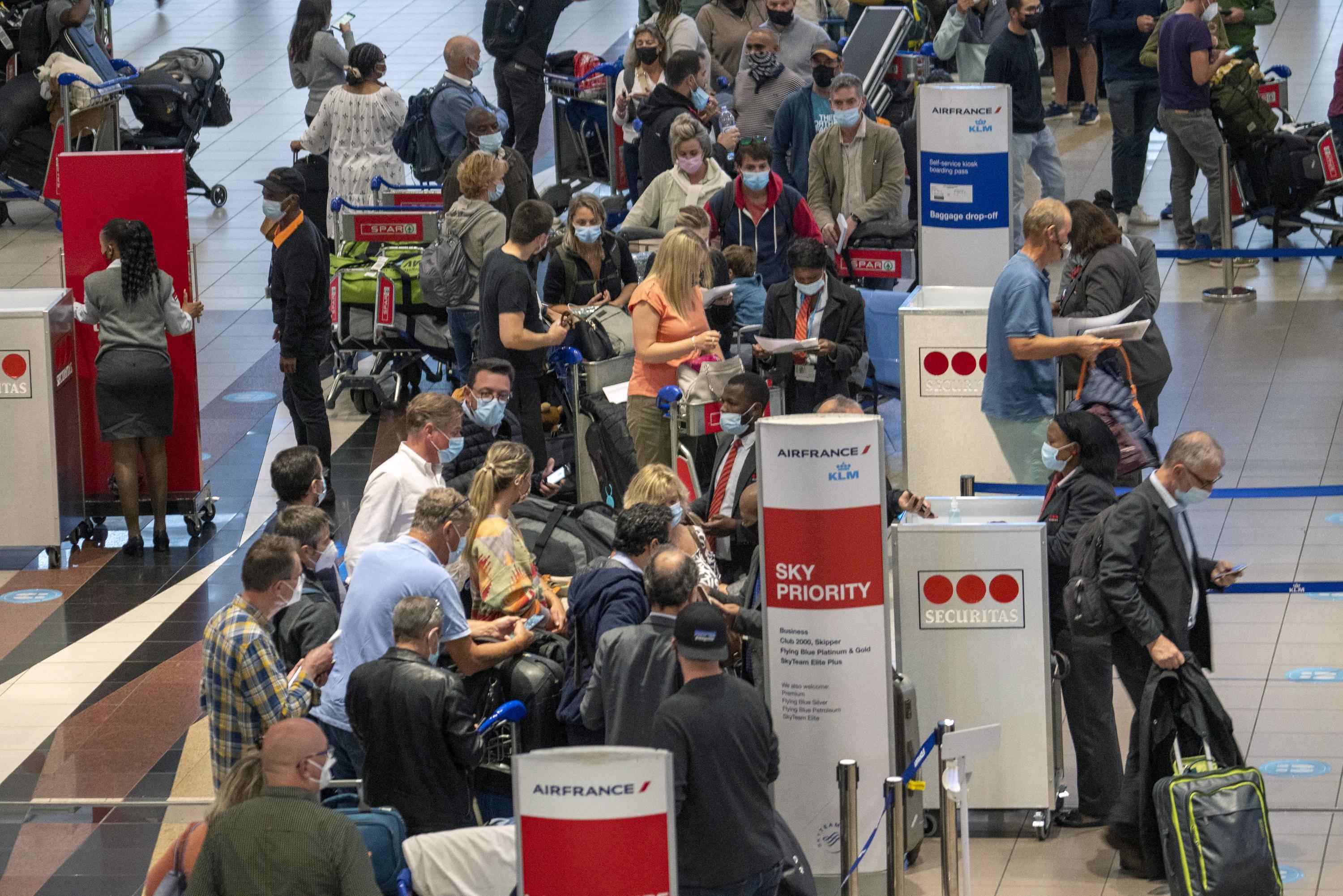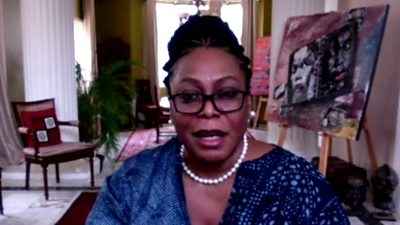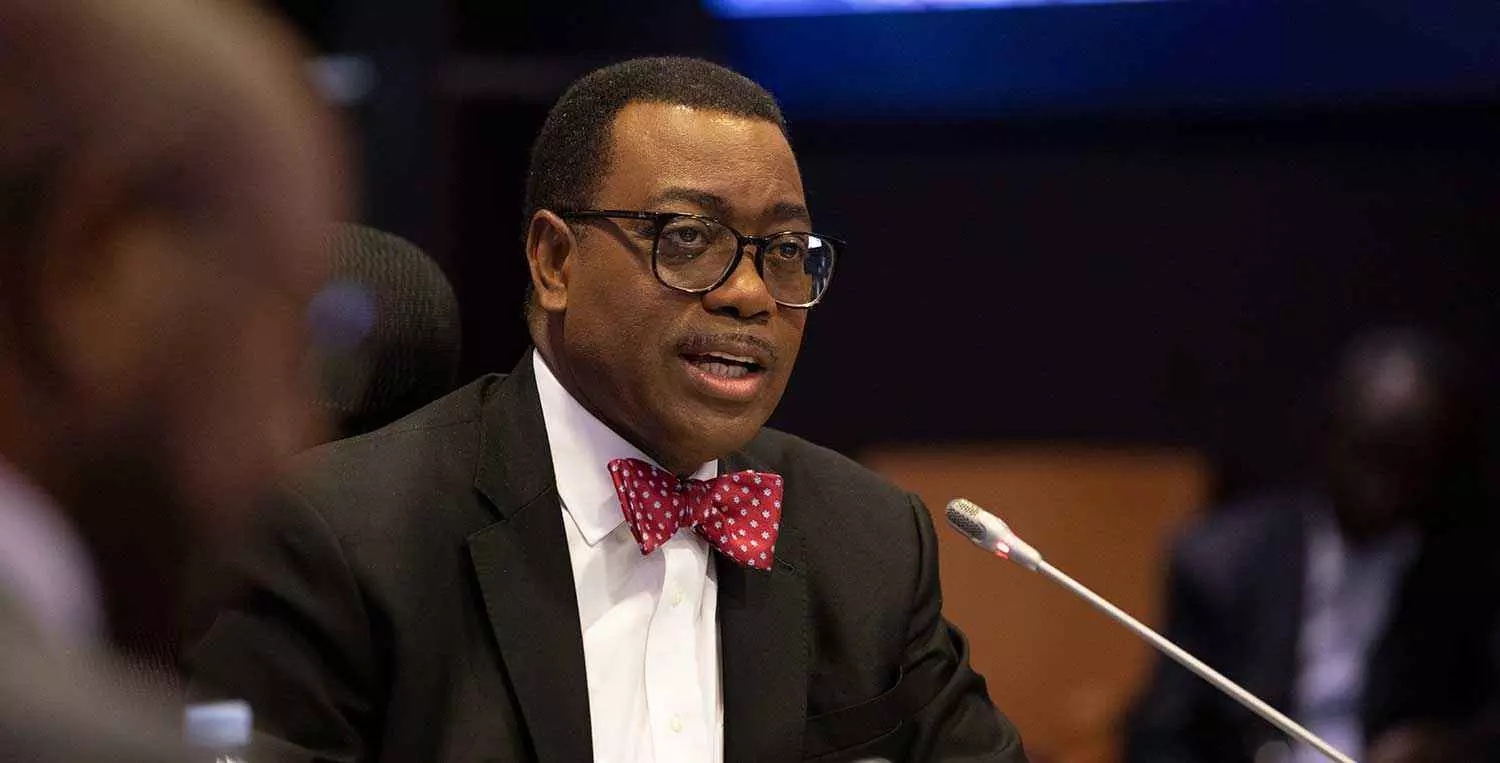COVID-19 Omicron: EU, US and others impose ‘targeted' travel bans on Africa

Ayoade Alakija, the co-chairman of the African Union's Vaccine Delivery Alliance, and Akinwumi Adesina, the president of the, have condemned what they call the developed world's rush to ban African countries over the discovery of a new coronavirus variant in South Africa, which the World Health Organization has named and classified as a SARS-CoV-2 Variant of Concern.
While Mrs Alakija gave an interview to the BBC, Mr Adesina turned to his verified Twitter account to express his displeasure with what he characterized as the world's determination to punish Africa for no reason.
New travel restrictions have been imposed.
The World Health Organization (WHO) reported the discovery of a new COVID-19 variation on Friday, saying that it has a large number of mutations and that preliminary research shows a higher risk of reinfection.
The worldwide body stated, "The number of cases of this variation appears to be growing in practically all provinces in South Africa."
Omicron has been found in Israel, Malawi, Botswana, the United Kingdom, Germany, Italy, Belgium, and Hong Kong, among other places.
As a result, the US, the UK, the European Union, and several Asian nations have 'hurriedly' placed travel bans on countries in Southern Africa, including Botswana, Eswatini, Lesotho, Malawi, Mozambique, Namibia, South Africa, and Zimbabwe.

Mrs. Alakija told the BBC that if the coronavirus had originated in Africa, industrialized countries would have simply shut Africa up and thrown away the keys.
The official, whose organization has been in the forefront of ensuring fair vaccine distribution in the face of the epidemic, accused high-income countries for putting the world's poor countries through unjustified hardship by hoarding vaccines.
Mrs Alakija described the new variant and its spread as "absolutely inevitable," adding, "First and foremost, had the first SARS COVID-19 virus, which was first identified in China last year, originated in Africa, it is now clear that the world would have locked us up and thrown away the key; there would have been no urgency to develop vaccines, because it would have been expendable." Africa would have been known as the COVID continent.
"What is happening today is unavoidable. It's due to the world's inability to vaccinate in a fair, timely, and effective manner. It is the effect of global stockpiling by high-income nations. And, to be honest, it's unacceptably bad. These travel restrictions are motivated by politics rather than research. It's incorrect."
She accused Moderna, a vaccine producer, of refusing Botswana the delivery of vaccine doses it had paid for even at higher prices, but that the firm, like others, had continued to service wealthier countries.
"The Botswana government ordered 500,000 Moderna vaccinations at a cost of $29 per dosage, far more than the rest of the globe spent," she claimed. They were not given the immunizations because others in line had rushed ahead of them.
"They gave it to other nations but not to Botswana, so we now have a variation." Do we have any idea where this variety came from? No, we haven't even discovered that yet. It's possible that it was discovered thanks to South Africa's superb research, but it may have originated from anyplace. This is racist, xenophobic, and unethical. Let us stick on science rather than politics. Allow African countries and others to create their own vaccines by sharing our know-how..."
She urged African leaders to speak up in support of the continent, particularly at this critical moment, stressing that their voices must be heard.
"How come Africans aren't vaccinated?" This is an outrage because we knew we were going to get here; we knew the hoarding and lack of IP waivers, the lack of collaboration on sharing technology and know-how, we knew this was a fork in the road that would lead to a variation, and maybe more harmful variants.
"What gives us the impression that we're surprised?" Why are we quarantining Africa when the virus has already spread to three continents, but no one is quarantining Belgium or Israel? Why are we isolating Africa?
"It's wrong, and it's past time for our African leaders to step up and speak up." At this point, African leaders must sit up and take notice. Our presidents need to wake up right now and realize that things aren't as they used to be. Mrs Alakija stated, "That continent is at risk, our lives are at stake, and we cannot allow the world to do this to us."

Mr Adesina asked international leaders not to label and penalize Africa for the new variation in his post on Sunday evening, while also urging Africa to begin producing its own vaccine, claiming that Africa has been mistreated by the global vaccine supply system.
"Vaccine access must be global justice, equity, and fairness," he stated. Africa has been underserved by the global vaccination supply system. In the midst of a forest fire, protecting one's home alone does not work. Put out the fire in the forest.
"Africa must speed the development of its own vaccines and establish its own "healthcare security defense system," and it must no longer rely on the goodwill of others to ensure the health of its 1.8 billion people."
In terms of COVID-19 immunizations, Africa trails substantially below other continents.
WHO authorities blame the immunization gaps on unequal vaccine distribution, claiming that wealthy countries have purchased enough doses to deliver booster injections while poorer countries have struggled to obtain initial doses.
Only fifteen African countries – roughly a third of the continent's 54 nations – had properly vaccinated 10% of their populations against COVID-19 as of September 2021.
The World Health Assembly, the world's top health policy-making organization, established a worldwide aim in May of completely vaccinating 10% of each country's population by 30 September. Almost 90% of high-income nations have achieved this goal.
Meanwhile, Mr. Adeshina and other activists feel that Africa needs to generate its own vaccines since the burden of relying on those produced in high-income nations is not evenly distributed.
Concerning the Omicron version
Many people believed that after almost two years of the epidemic and the discovery of the Delta strain, the world would soon return to normal. However, the finding of the Omicron, as well as the rapidity with which it is spreading over the planet, serves as a sobering reminder that the epidemic is far from ended.
However, there is currently no clear scientific data to establish the virulence of the new variation, and high-income countries' hasty reactions have been attributed to politics rather than science.
People infected with the omicron variety had very moderate symptoms, according to a research by the South African Medical Association.
SAMA's chairperson, Angelique Coetzee, was described in the report as telling the BBC that the instances documented so far are not serious. "However, she cautioned that research into the omicron version is still in its early phases," she said. She went on to say that just 24% of South Africans have been completely vaccinated as of Sunday."
"Omicron sufferers tended to be younger, according to the research, and the variation was not detected as frequently in the senior population. Fatigue and bodily pains were the most common symptoms among those infected with the variation. "However, what effect infection has on older persons with underlying medical disorders such as diabetes or heart disease is yet unknown," the paper noted.
Where has the existence of omicron been established?
South Africa, the United Kingdom, Belgium, Botswana, Germany, Italy, Hong Kong, Israel, the Czech Republic, the Netherlands, Denmark, and Australia have all reported cases.
How contagious is it?
Omicron, according to scientists, may be more transmissible and adept at eluding the body's immune systems, making vaccinations less effective. In comparison to other types, early data indicated a "increased risk of reinfection," according to the WHO.
What is the severity of the situation?
All COVID-19 variations, including the globally widespread Delta variant, can cause serious sickness or death, especially in the most susceptible persons, hence prevention is always the best option.
Scientists are still unsure if Omicron infection produces more severe illness than infections caused by other variations, such as Delta.
WHO also stated that it is working with technical partners to determine the new variant's possible impact on existing countermeasures, such as vaccinations.
Actions suggested by the WHO
As a Variant of Concern, WHO recommends that countries improve surveillance and sequencing of cases, share genome progressions on publicly available databases such as GISAID, report initial cases or clusters to WHO, and conduct field investigations and laboratory assessments to better understand if Omicron has different transmission or disease characteristics, or impacts the effectiveness of a vaccine.
Countries should also continue to undertake effective public health interventions to limit COVID-19 circulation overall, according to the WHO, using a risk analysis and science-based approach.
According to the WHO, discrepancies in COVID-19 vaccine access must be addressed immediately to guarantee that vulnerable populations worldwide, including as health professionals and the elderly, receive their first and second doses, as well as fair access to and diagnostics.
